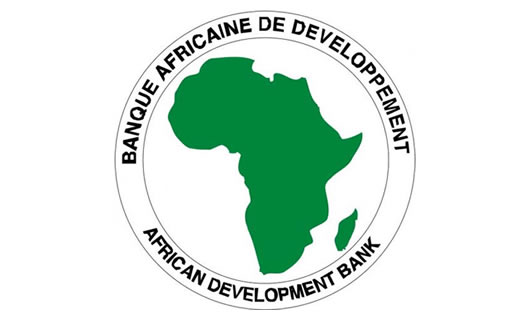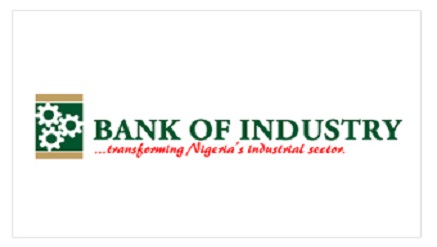E-Financial
AfDB Targets 29.3 million Africans with Electricity by 2020

In line with its High 5 development priorities and, in particular, its agenda to Light up and power Africa, the African Development Bank plans to reach 29.3 million people in African with electricity by 2020.
The President of the Bank, Akinwumi Adesina, made this disclosure at the High Level Event on “New Way of Working: From Vision to Action-National, Regional and Global Dimensions” at the United Nations Economic Commission for Africa in Addis Ababa, Ethiopia.
He pledged support for the New Way of Working as “crucially important” and indicated that it requires a new way of tackling development issues.
United Nations agencies signed a “Commitment to Action” document at the World Humanitarian Summit in which they agreed on a New Way of Working in crises.
“The African Development Bank is today at the forefront of investing in renewable energy in Africa. The share of renewable energy in the Bank’s energy portfolio increased from 14% when I became President in 2015 to 100% last year.
Our support last year alone provided 3.8 million Africans with access to electricity. And, with adequate financing, we expect to reach 29.3 million people with access to electricity between 2018 and 2020, President Adesina said.”
The Bank President called on the UN Secretary General to join him in supporting the Green Climate Fund and the Global Environment Facility to also work differently, and step up support to co-pay for climate risk insurance for vulnerable African countries, noting that African countries, hit by climate change, are hard pressed to find funds to pay the insurance premiums.
The Bank has stepped up and will support African countries to pay for insuring themselves against catastrophic weather events that displace their public expenditures.
It plans to provide US $76 million in 2018 for the payment of insurance premiums, with participating countries providing US $31.5 million and the African Risk Capacity Agency (ARC) providing US $16 million.
Latest figures indicate that over 20 countries have indicated interest in participating in the Bank-supported initiative.
“An understanding of the link between environmental degradation, extreme poverty and youth unemployment is critical to a New Way of Working. Wherever these three elements are present, there is a ‘Triangle of Disaster’, in which unemployment, poverty and environmental degradation chase each other in a downward spiral to dereliction, terrorism, violence and conflict,” Adesina said.
“The African Development Bank brings this understanding to bear in its policies and programs. Africa’s Triangles of Disaster must become ‘Triangles of Prosperity,’” replete with “jobs, wealth and environmental resilience.
That is why we strongly welcome the New Way of Working initiative.”
The Bank has also committed to triple its climate financing to 40% of new approvals by 2020, and is deploying programs and actions to combat fragility and strengthen resilience.
This, the President explained, includes the Sahel region with a US $261-million program; the Horn of Africa with a $281.6-million program; and, for Lake Chad, now seriously affected by the degradation of its productive ecosystems, a US $101-million program to restore the productivity of the basin ecosystem.
The Desert to Power initiative spearheaded by the Bank aims to turn Africa’s deserts into new sources of energy, by working with partners to develop 10,000 MW of solar power systems across the Sahel.
The initiative is expected to provide electricity to 250 million people, with 90 million of these provided through off-grid systems.
“We have already started with development of a 50 MW solar power system in Burkina Faso.
The initiative will protect the Great Green Wall of trees established to protect against desertification in the Sahelian zone, from being cut down by energy-poor households for use as fuel wood.
When completed, we expect this to be the largest solar power system zone in the world, Adesina said.”
Last year, the Bank approved a special framework program called “Say No to Famine” worth US $1.14 billion.
The Bank is taking a regional approach to addressing fragility, consistent with its new structure, and is using its Transition Support Facility to deliver development solutions to communities in conditions of fragility.
E-Financial
CBN Expresses Concern Over Foreign Investments in Nigeria Fintechs

The Central Bank of Nigeria in its 2025 Fintech Policy Insight Report, has raised concern over Nigeria’s fintech sector heavily dependent on foreign investment, exposing it to swings in global markets.

The report said the sector has shown resilience despite global economic pressures, but warned that reliance on external capital leaves it vulnerable to market fluctuations.
It would be recalled that startups in the country raised $520m in equity funding in 2024, down from about $747m in 2019, when Nigeria captured roughly 37 per cent of all African startup investment.
This performance, amid significant global macroeconomic gyrations, underscores Nigeria’s position as a key hub for financial innovation. The sharp rise in interest rates in advanced economies during 2022 contributed to a slowdown in venture capital funding.
“These dynamics highlight the importance of developing domestic funding avenues, such as leveraging Nigeria’s capital markets, to reduce currency risk and sustain fintech growth,” the apex bank stated.
Olayemi Cardoso, CBN Governor, said Nigeria is undergoing a rapid and significant financial evolution. Over the past decade, the nation’s fintech landscape has grown from a handful of startups into one of Africa’s most vibrant innovation ecosystems.
“Even amid global economic headwinds, Nigerian fintech firms continued to attract investment and drive change. Today, with improved stability of our currency and domestic economy, it is clearer than ever that financial innovation can advance inclusion at scale,” the executive commented on the report.
In addition to funding, the central bank underscored Nigeria’s continued leadership in digital financial infrastructure. More than 25 per cent of all electronic transactions in Africa’s most populous nation are processed via real-time payment channels, with close to 11 billion transactions processed in 2024, up from five billion in 2022. The report described Nigeria’s instant payments platform, NIBSS NIP, as among the most mature and widely adopted globally.
The report also mentioned the need to strengthen system integrity and reputation, pointing to compliance reforms, anti-money laundering supervision, and consumer protection measures as key priorities for sustaining investor confidence.
By focusing on domestic funding, regulatory modernisation, and innovation infrastructure, the CBN aims to position Nigeria not only as a fintech front-runner but also as a rule-setter whose regulatory lessons are relevant to peer emerging and high-growth economies globally, the central bank said.
Stakeholders surveyed by the CBN also cited compliance costs as a significant challenge to innovation. According to the report, 87.5 per cent of respondents said that the cost of meeting regulatory and risk requirements significantly impacts their capacity to innovate, while delays in product approvals and regulatory timelines also remain major bottlenecks.
The report noted that 62.5 per cent of fintech firms plan to expand regionally, and there is strong support for regulatory pass-porting frameworks to enable compliant expansion into other African markets. However, the CBN warns that such cross-border growth requires a stable funding base and coordinated regulation.
E-Financial
UBA’s Easy and Instant Account Opening Thrills Returnee

After a few years abroad, I returned to Nigeria and faced a dilemma. Let me tell you all about it.

UBA
A few days ago, I was dragging my luggage through Murtala Muhammed International Airport. Everything felt bright and beautiful. Not necessarily in aesthetics, but in the vibrant colours, sounds, and energy all around. After three intensive years in the UK, I was finally back home. Ready for the hustle and bustle of Lagos life, and yes, the comfort of my parents’ home.
The plan was simple. Settle down and get my life on track. I’d sorted the job, and I had my person. But then came my dilemma. Money!. This doesn’t mean I was short of it or had too much of it. The real issue is where to actually keep and manage it in this country with daily dramatic happenings. With just two weeks left before I resumed at my new workplace, I had no time for long queues, endless paperwork, or the classic “Nigeria bank stress.” So, I needed an account, and I needed it fast.
So I turned to my best friend, Google, and typed, “Instant account opening in Nigeria.”
In less than a second, I was redirected to the United Bank for Africa instant account opening portal. A few taps later, and I had a fully functional account. Just like that. I could receive my funds, transfer my funds, and start building my financial life here again.
In less than a second, I was redirected to the United Bank for Africa instant account opening portal. A few taps later, and I had a fully functional account. Just like that. I could receive my funds, transfer my funds, and start building my financial life here again. Talk about ease, and this beautiful experience truly exemplified that definition
I was genuinely amazed. It felt too easy, almost suspiciously easy. But it was real, I mean, really soft like they were just thinking all about me while developing this new feature.
If you’re like me and pressed for time, avoiding unnecessary stress, or just ready to sort your finances without the hassle, consider this your sign.
UBA’s instant account opening is a game-changer. No queues to cut into your precious time. Just you and your phone, minutes away from being banked.
Get started here: https://aop.ubagroup.com
Trust me, if I could do it between unpacking and settling in, you can do it too. Your future self will thank you.
E-Financial
BOI Secures CBN Nod for Sharia Banking, Unlocks Ethical Funding Boom

Bank of Industry (BOI) has received Central Bank of Nigeria (CBN) approval to launch a Non-Interest Banking (NIB) Window, expanding ethical financing for underserved businesses nationwide.

BOI
The move positions BOI to mobilise Sharia-compliant funds, finance assets and raw materials without interest, and target MSMEs plus high-impact sectors previously sidelined by conventional loans.
Divisional Head of Public Relations, Theodora Amechi, said the window aligns BOI with social goals, boosting real economy support and sustainable industrial growth.
MD/CEO Dr. Olasupo Olusi hailed it as a “pivotal moment,” enabling the bank to serve faith-sensitive enterprises shunning riba-based loans.
Analysts see it as CBN’s vote of confidence in BOI’s governance, set to spur innovation and inclusive financing for Nigeria’s ethical business segments.
Established in 1959 as Nigeria’s top Development Finance Institution, BOI now strengthens its drive for broad-based economic transformation.

 E-Financial2 days ago
E-Financial2 days agoAlawuba Advocates Security, Bankable Projects, Infrastructure Development to Promote South-East Vision

 Telecom1 day ago
Telecom1 day agoNCC Committed to Regional Digital Integration – Maida

 E-Financial1 day ago
E-Financial1 day agoCBN Expresses Concern Over Foreign Investments in Nigeria Fintechs

 General News1 day ago
General News1 day agoIndigenous Firm Deploys 400,000 Smart Electricity Meters in 2025

 E-Financial1 day ago
E-Financial1 day agoBOI Secures CBN Nod for Sharia Banking, Unlocks Ethical Funding Boom

 Telecom1 day ago
Telecom1 day agoITU Top Director Visits NITDA, Boosts Nigeria’s Digital Literacy Push

 E-Financial1 day ago
E-Financial1 day agoUBA’s Easy and Instant Account Opening Thrills Returnee

 News1 day ago
News1 day agoEFInA Unveils Research Fellowship Programme to Deepen Financial Inclusion Impact



























